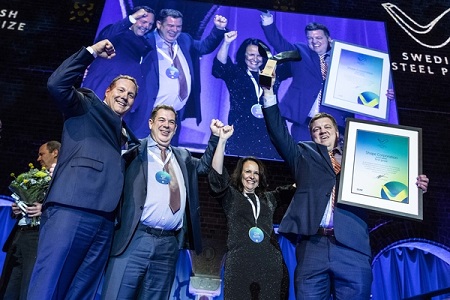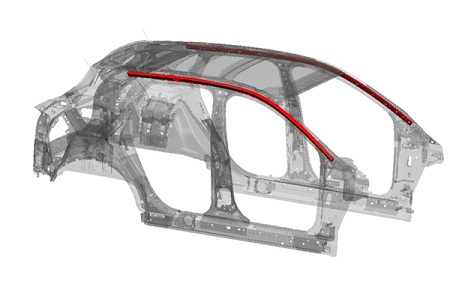
“With great skill, Shape Corp. has shown the way forward and has succeeded in efficiently utilizing a modern material with the highest possible strength level. This shows a major opportunity in challenging other lightweight materials with a steel solution that allows for circular material flows,” says Eva Petursson, chair of the Swedish Steel Prize jury and head of SSAB’s research and innovation.
Shape Corp.’s cost effective and robust manufacturing process for 3D shaped tubes made it possible to utilize the cold forming martensitic steel Docol® 1700M, from SSAB, for a unique lightweight solution for A-pillar and roof rail tubes, with a minimal profile size. The components will soon be implemented in a number of Ford vehicles, including the 2020 Ford Explorer and 2020 Ford Escape.
Thanks to 3D forming, instead of hydroforming, Shape Corp. has succeeded in creating smaller profiles than traditional solutions, allowing for better driver visibility, more interior space as well as better packaging of airbags.
The 3D formed A-pillars also have an improved strength to weight ratio of over 50 percent, which has led to an overall mass reduction of 2.8 to 4.5 kg per vehicle.
Shape Corp.’s highly innovative technology and use of steel has been proven viable within the global automotive industry and represents a major leap forward in both car safety and automotive design.
The Swedish Steel Prize, which celebrates its 20th anniversary this year, recognizes good engineering, cooperation and steel innovations that lead to a better and more sustainable world. The winner receives a diploma, a statuette by the sculptor Jörg Jeschke and intense media exposure. In conjunction with the Swedish Steel Prize 2019, SSAB will make a SEK 100,000 donation to UNICEF in support of their efforts to provide quality education and learning opportunities to children and adolescents worldwide.
The other finalists, Austin Engineering from Australia, Kampag from Brazil and Roofit.solar from Estonia, were runners-up for the Swedish Steel Prize 2019.















